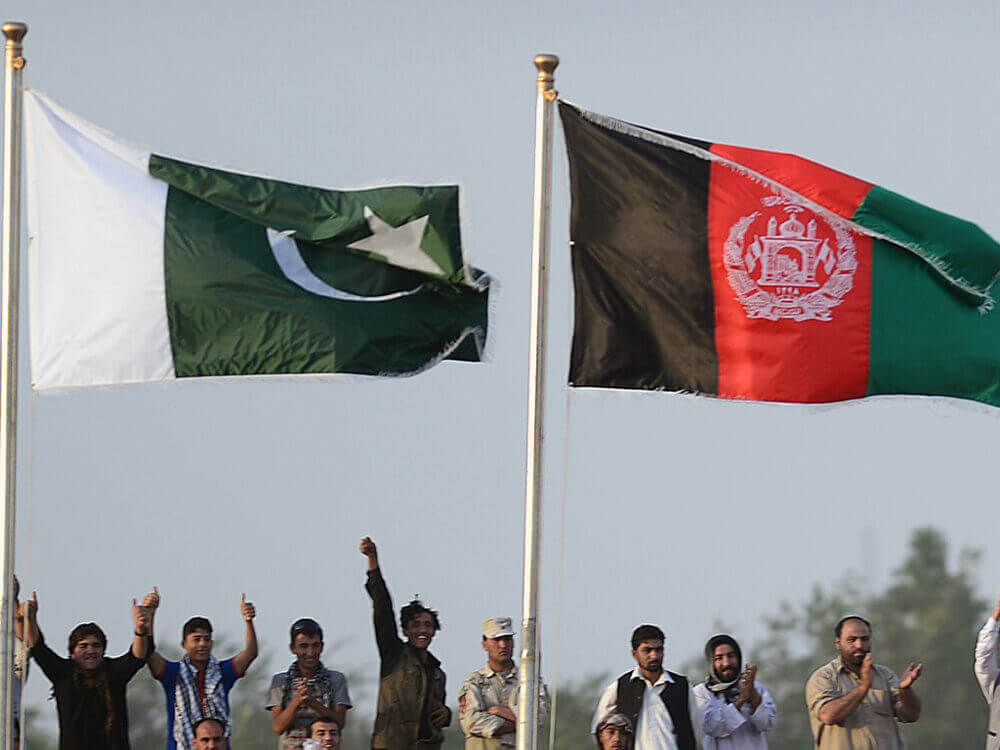Afghans are using Twitter to call for sanctions on Pakistan over its alleged support of the Taliban-led violence in Afghanistan as foreign troops withdraw from the war-torn country. The Taliban took control of the ninth Afghan provincial capital on Wednesday, sparking concern that the group can take over the entire country in the coming weeks.
Over 700,000 tweets with #SanctionPakistan, criticising the Imran Khan-led government for fighting a “proxy war” in Afghanistan, trended on the platform as of Wednesday.
Habib Khan, an Afghan journalist, who previously worked for The Washington Post, was among the loudest advocates of the social media campaign and asked his 97,000 followers to ensure that the hashtag hits a million tweets. He also urged Afghans to “speak up” using all social media platforms and “call for ending the proxy war.” He pleaded, “Afghanistan is under attack and needs you the most now.”
Speak up against Pakistani proxy war in Afghanistan. Join the trend. Let’s hit a million. We are already at 237k. Long live Afghanistan 🇦🇫 #SanctionPakistan pic.twitter.com/EJtTFlboAI
— Habib Khan (@HabibKhanT) August 9, 2021
Several other activists and journalists echoed this sentiment. Daud Junbish, another prominent journalist, said that Pakistan was “supporting and directing terrorism” in the war-torn country. Similarly, Afghan rights activist Wazhma Frogh highlighted that the Pakistani government supported less than 100,000 Taliban activists, over 35 million Afghan people, and urged the government to support and stand by the Afghan nation.
Pakistani state chosen less than 100k Taliban militants over 35 million Afghan population-today in every Afghan home Pak has an enemy, is this worth it?
— Madam Frogh (@FroghWazhma) August 9, 2021
Why can’t Pakistani state choose to stand by Afghan nation instead? Millions of them,who have a lot in common with Pakistanis https://t.co/9qkZAfjYSU
Another person spoke about the Afghan people’s right to live without a “fear of invasion by a neighbouring country that sends terrorists to kill them and their children.”
Other users are calling on the international community to impose sanctions on the South Asian country to protect Afghanistan and the Afghan people from perishing due to the violence. Some others tweeted an edited picture of Pakistani Prime Minister Imran Khan wearing Pashtun clothing, holding a bazooka.
The social media campaign comes amid a rising anti-Pakistan sentiment among the Afghan diaspora in Washington, Brussels, Denmark, Sweden, Germany, and the United Kingdom, aiming to highlight Pakistan’s support for the Taliban. Afghans also held protests in various cities worldwide, demanding the international community’s attention on the issue.
Earlier, the Afghan government criticised Pakistan for its role in the violence since the departure of the United States (US) and NATO forces. Afghan Foreign Minister Mohammad Haneef Atmar accused Pakistan of providing a haven to groups like Lashkar-e-Taiba, Tehreek-e-Taliban Pakistan, and Al-Qaeda, all of which have colluded with the Taliban in Afghanistan. The representatives also reiterated their belief about Pakistan’s involvement in the violence in the country during the recent United Nations Security Council meeting.
However, the Pakistani government has repeatedly claimed that it supports an “Afghan-led and Afghan-owned” peace process. Its officials have defended their government and urged the international community to focus on the failures of the Afghan government and their security forces rather than blaming Pakistan.
Earlier this week, Pakistani Information Minister Fawad Hussain said, “With 8th province falling to Taliban, people of Afghanistan and people of USA must question so-called leadership of Afghanistan [as to] where 2 Trillion USD vanished that they received to build Afghan National Army?” He also highlighted that while the country’s ministers and generals had earned billions, the Afghan people had been pushed into poverty. He accused the corrupt Afghan leaders of failing to defend themselves against the Taliban-led violence and held them responsible for the people’s sufferings.
Moreover, a Pakistani think-tank, the Islamabad Policy Research Institute, accused India and Afghan-sponsored accounts of the vicious social media campaign against the Pakistani government that resulted in the #SanctionPakistan trend.
The claims put forth by the institute were reiterated by Pakistani National Security Adviser Moeed Yusuf, who dismissed the attempts to blame Pakistan for the violence in Afghanistan. He said, “We will expose everything with data and tell the world about it. We will present our point of view on national as well as international media.” He added that this narrative targets Pakistan to ensure it is in the FATF’s grey or black lists.
Despite the Pakistani government’s dismissal of the trend as “fake news”, the online and offline campaigns continue to gain traction.

